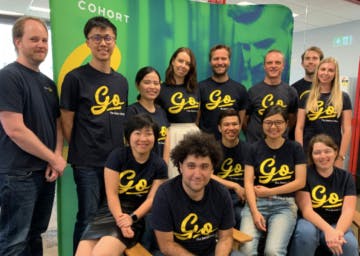Media article posted by Startup Daily on 18 December 2018.
South America is the “new world” when it comes to opportunities for Australian businesses looking to expand internationally. With $4.75 billion in exports to the region being recorded in 2016-17 alone, Australian companies across multiple sectors are considering how to make their mark on South America.
Being a global online business servicing the international education industry, we have come up against our fair share of challenges when operating in foreign countries. Global businesses must navigate the challenges of operating within systems that may be slower, less transparent or accountable than what they are used to, and South America’s benefits are definitely worth consideration.
With team members in Colombia and Brazil, Cohort Go is now working on expanding our South American footprint, and here is my advice for Australian companies wanting to do the same.
Prepare in advance
It’s important to make the most of your time in market with a carefully prepared schedule. On a recent business trip to South America, we had meetings in Brazil, Chile, Peru, Colombia and Mexico. These meetings were facilitated via Austrade and held in Australian embassies or ambassadors’ residences.
We met with international education agents who were very engaged and enthusiastic and wanted to know what we had to offer. Being prepared enough to answer their queries and locking in meetings well in advance is vital to having a successful visit. We also found that having existing customers advocating to potential customers about why they were using our services gave us an edge. Having local validation of a product from outside the region can make all the difference.
Be aware of the challenges
The South American market has always been important to us. Despite the large numbers of Asian students coming to study in Australia, regions like South America are a growth area with lots of potential. But like any market, South American countries have their individual quirks and challenges including political corruption. With the former president of Brazil, Dilma Rousseff, being impeached in 2016 and the former president of Argentina, Christina Kirchner, recently charged in a bribery scandal, being aware of the political climate is vital if you’re to set up a successful operation in the region.
A different perception of the banking industry is another challenge in South America. Unlike Australia, for an array of reasons, families may also store their savings in institutions and products that are not banks. This can cause students issues when trying to evidence formal savings in order to obtain their student visa.
With our global payments solution, we face an additional layer of complex financial regulations in most countries, and running a payment service in South America is not always straightforward. Fraud and corruption are high in some markets, so working with good local lawyers can help a lot, as can doing your research and keeping your eyes open.
I would advise businesses’ talk to other companies who operate in the same countries, find out how the government, legal system and tax system work, and talk to Austrade and local chambers of commerce who provide a really good sounding board and can introduce you to relevant firms.
Hire locally
Nothing beats face-to-face meetings, and having people on the ground is extremely important. This means timely customer support and being able to visit clients locally.
Our next hire will most likely be a customer support role in Brazil, as we see a lot of potential there. This hire will allow our business development manager to do what they do best. However, unlike the rest of South America where Spanish is the primary language, in Brazil they speak Portuguese. So, if you’re looking to do business in Brazil as well as other countries in the region, having staff who speak English, Spanish and Portuguese would be ideal. It’s also good to learn some Spanish and Portuguese yourself, so you will know when to say hola and when to say olá.
Australia has become a particularly attractive international education destination for South American students. The political situation in the US has meant that a large number of students are no longer going there to learn English and complete further study, and this is to the gain of other markets such as Canada, Australia and New Zealand.
There is a key opportunity to capitalise on this trend, not just with international education but with business more widely. Ideally we want foreign students to come to Australia not just to study English, but to stay longer-term, go on to further study and eventually build cultural and business links between the two regions. Australian businesses who expand their operations to South America are enabling these links to form.
Mark Fletcher is CEO and cofounder of Cohort Go, a leading edtech company that enables international education, from anywhere. Cohort Go is the only comprehensive international education offering worldwide, reducing costs and increasing choice and value for the community. Trusted by more than 80,000 students and over 2,000 agents and educators, Cohort Go services students, agents and educators in over 180 countries.




